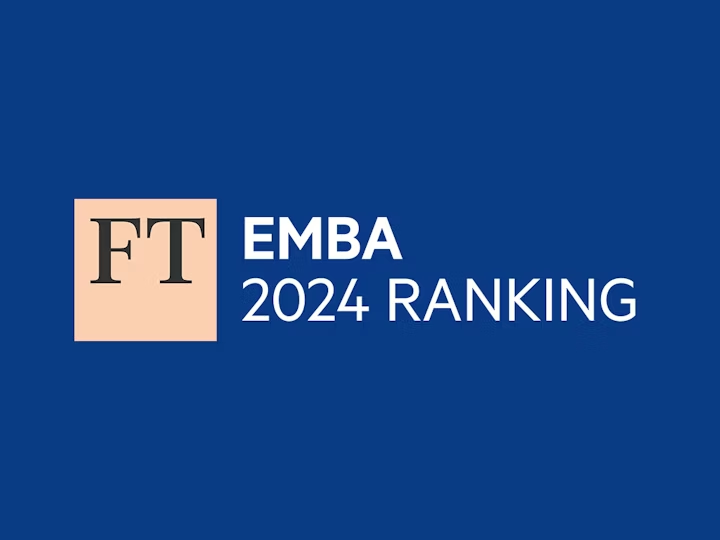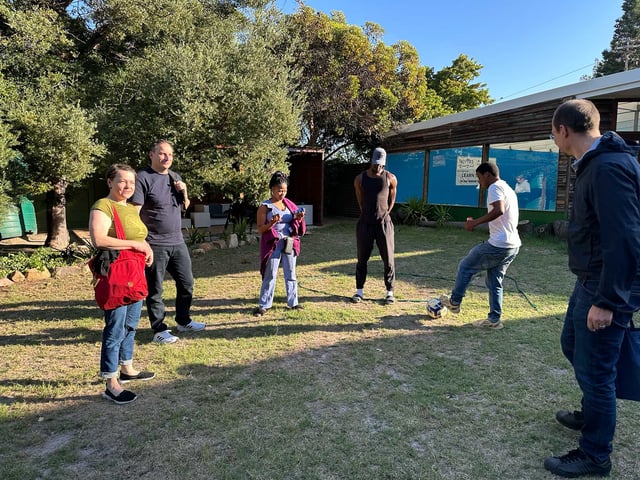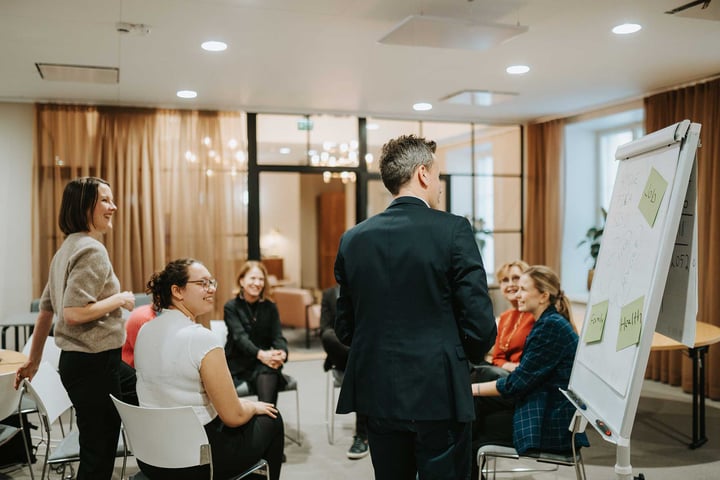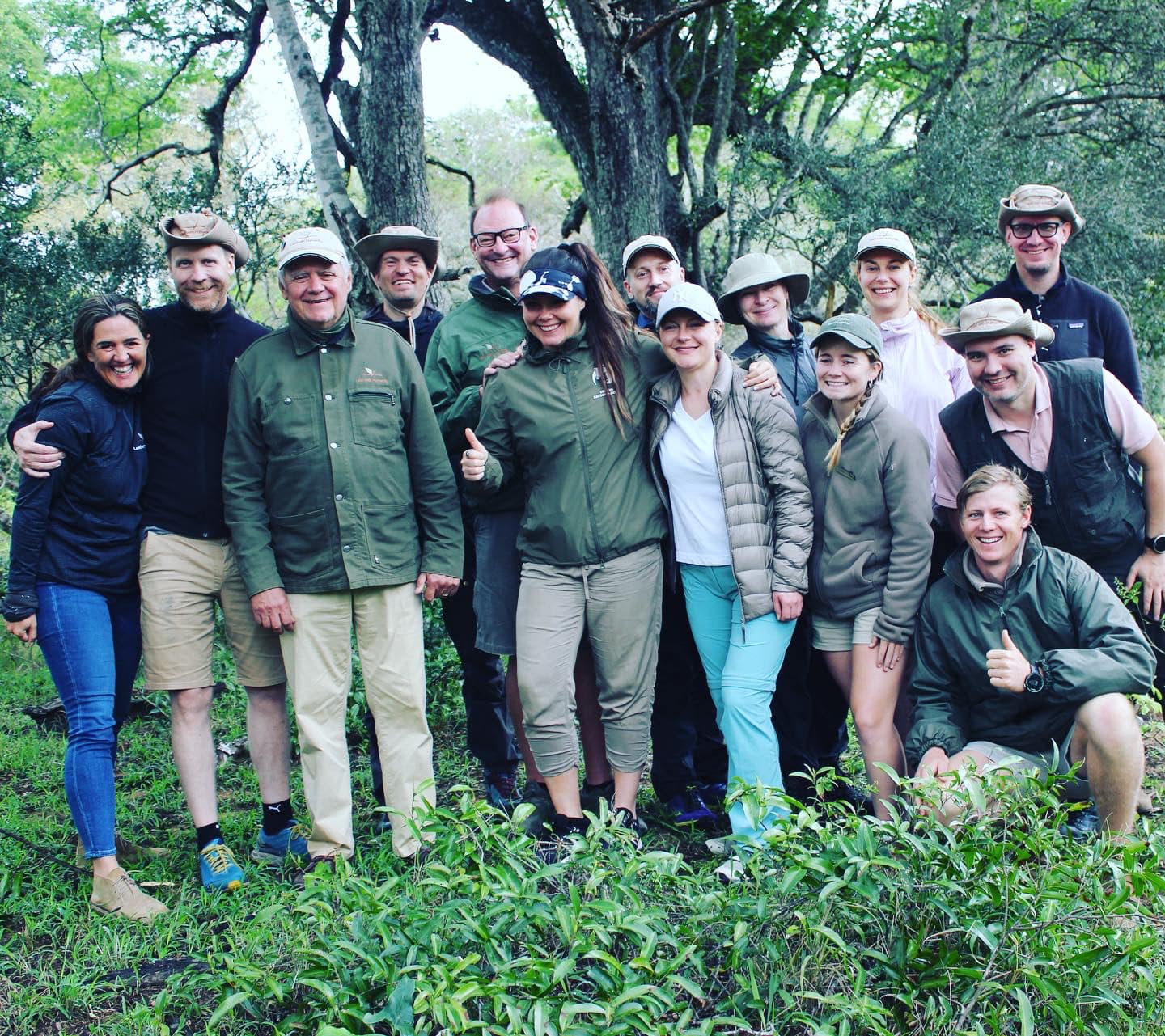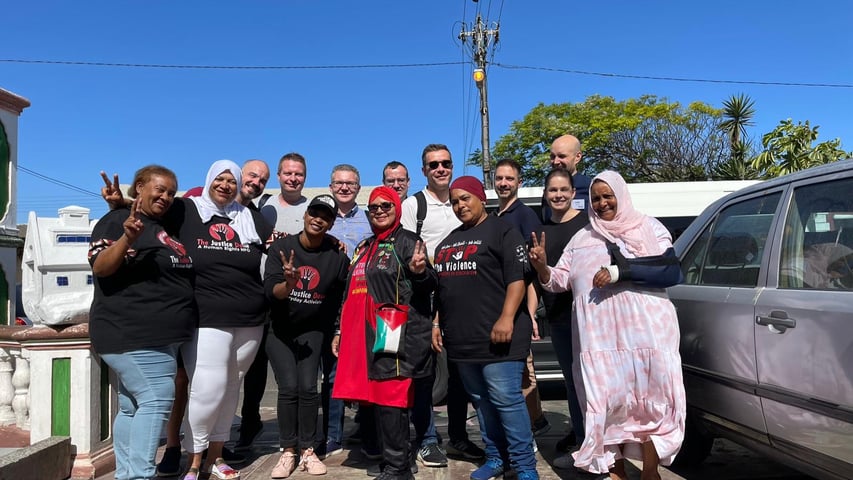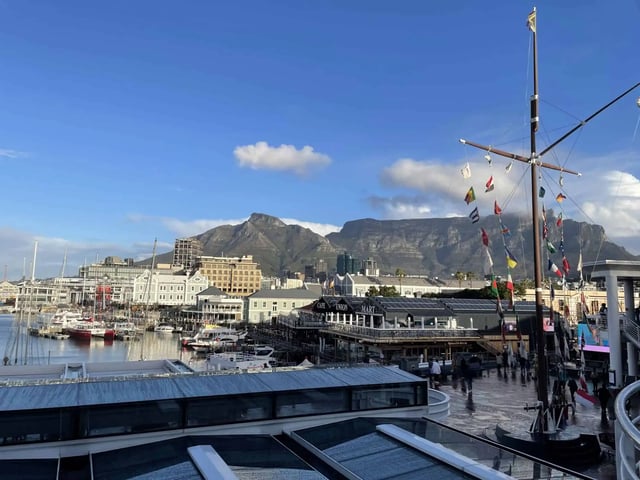When we met someone, we would greet them by saying ‘sawubona’, which is Zulu and literally means ‘I see you’. The greeting carries a meaning of being seen, being present.
In October, I spent an unforgettable week in Durban in South Africa. The leadership immersion programme organised by Lead with Humanity was an elective module in my Executive MBA studies at Henley Business School. Because of COVID, the trip was postponed several times in the past two years. Even now, we did not know much of what to expect: we had only been given a list of things we would need to survive in the African bush in the KwaZulu-Natal area.
‘When you go home, don’t tell people what you did here. Tell them what this week meant to you,’ said Pete Laburn, who created the Lead with Humanity philosophy and along with it, the entire organisation and network. In addition to organising training, Lead with Humanity supports and empowers communities and activists who are fighting for human dignity. Although it has been more than 30 years since apartheid ended in South Africa, the gap in the standard of living between blacks and whites is still striking. During the week-long programme, I came to understand that South African organisations and volunteers are doing work that should be the responsibility of the country’s government and local governments.
In Durban, I see a kind of poverty that I’ve never witnessed before. I give my phone away for two days so that I can be fully present, really see the people I meet and find a connection with them. In the Phinda game reserve, we wake up at 5 am and head into the African bush to track animals. After the early morning, animals won’t be on the move again until the evening. Each excursion is different.
For those seeking control, the programme may not be a great match. Formal power is a secondary matter among us because leadership and rank are not automatically related.
Leaders give
In Durban, we explore slum-like temporary settlements that do not officially even exist. I peek into the tiny shacks made of metal sheets and wood that the 1000 residents of the neighbourhood cram themselves into. Quite a few of the men are drunk. As a sign of communality, a space has been set up where a volunteer hosts a reading club for the children. People in their twenties are dreaming of also setting up a small studio where the community’s children could exercise their creativity.
In another part of Durban, surrounded by churches of several different faiths, there is a centre that gives out hot meals and health advice to the poor and homeless on a daily basis. The centre is run by Raymond Perrier, who made millions working as a brand manager in New York but has now chosen to help people, first at a refugee camp in Uganda and now in Durban, because it feels more meaningful to him. In addition to providing immediate help, the centre also seeks to help build a foundation for lasting life change. This miracle has been experienced by a young man who runs a second-hand bookshop next to the centre. This former drug addict now makes a living selling books donated by wealthy families.
Again and again, we keep coming back to food – and the lack thereof. Even when the bottom of the centre’s gigantic pot starts to show, we continue to scoop up whatever liquid remains to fill the last of the bowls and give people something to soak their dry wheat bread in. I look at the homeless, the way their gaze wanders and their faces turn downwards.
SA Harvest is an organisation that seeks to end both hunger and food waste by feeding the hungry with rescued surplus food that would otherwise go to waste. In South Africa, 20 million people go to bed hungry every night, while 10 million tonnes of food (enough to feed these people three nutritious meals a day for over a year!) is wasted every year.
I feel like the only natural resource that we’ll never run out of in the world is the joy and curiosity of children. In a poor neighbourhood, I’m joined by a group of young boys who are touching my hands and laughing, wanting to give me a hug. When I stroke their coarse hair, I think about my own flaxen-haired child far up in the north. A man in the neighbouring building sees me passing by, steps out of the house and starts yelling: ‘Hungry!’ As I keep going, I soon come across a young woman with cloudy eyes who is all skin and bones. She is incoherent and just keeps saying ‘I’m hungry.’ Following her mother is a child of only a few years old, carrying beer bottles.
Leaders make an impact
Community leaders exhibit a kind of leadership that I’m not used to seeing. They are tireless fighters, ports in a storm. Almost from nothing, activist Blessing Nyomi has launched projects in a shunned neighbourhood of 5000 people, projects that have resulted in income and meaningful activities for residents. She has saved people suffering from depression and taken in children who have been raped. In the same neighbourhood is a small Mahatma Gandhi museum. While we are standing in front of it, Blessing says: ‘We don´t use power, we use power of influence.’
These words epitomise a notion that I keep coming back to: influence that is exerted in relation to another person. To do so, you first have to see the other person and show respect for them.
When we leave Durban and head to the Phinda game reserve, our senses open up to the natural surroundings, the wild animals around us and the laws of nature. We test our connection with and trust of each other. On our final night, I hear a lion roaring outside my tent. I become aware of the predator, but I’m not particularly afraid of it.
My understanding of leadership is becoming clearer and more straightforward. I have been adopting a philosophy of servant leadership even before this trip, coming to the conclusion that servant leadership may just be the most modern kind of leadership around. There is a clear demand for it, but it is also something that is easy to lose in our ego-centred culture. During this trip, we may have become better versions of ourselves.
During the week, Pete Laburn, Steve Hall and Sue Schreuder – all top experts in facilitation and human nature – are constantly with us. They dedicate all their time to us: they wake up early in the morning with us, eat with us, sit in on each other’s lectures, accompany us to each place we visit and keep us company until we retire for the night. And they make observations about us as people. They get us to not only like them, but also ourselves. Never before have I experienced a similar presence and ease of being in anyone. This is what a leader should do, is it not? To make an impact by really seeing the other person.
By the campfire on our last night, Steve reads a long poem he wrote, with a stanza dedicated to each participant. What a gift he has, and what a gift he gives our group.
Leadership is about being, not doing
The most important role models that have influenced the Lead with Humanity concept are Nelson Mandela and Mahatma Gandhi. In South Africa, they are not distant figures, but locals who led actual change in their lifetime. Steve tells us a story of how, decades earlier and completely out of the blue, he was invited to join Nelson Mandela for breakfast. Mandela’s soft hands, strong presence and genuine interest in the young man who had tried to dodge the meeting still feel like a revolutionary experience to him. Mandela and Gandhi did not lead with authority, but with influence – by showing compassion and setting an example.
Over the years, I have studied various leadership frameworks and concepts, and we also touched on them both before and during the trip. But this time the context was different, more straightforward, inviting.
Did I really have to travel this far to realise that my children crave acts of love from me – small gestures, stroking their skin and being present? My work community and many other communities that I belong to, the friends and people around me – including my family – also have a need to be seen. I have escaped the toil of everyday life by turning inwards, losing touch with the people I love, sometimes also with myself. But as Gandhi puts it, the best way to find yourself is to lose yourself in the service of others.
The hectic and high-responsibility job description of a leader is beginning to lose its significance because doing a lot has little to do with leadership. Egocentricity, further heightened by social media, has turned us into enterprising action-takers. It might be helpful if Finnish had a specific term for the concept of ‘leader’. Finnish has only one word, johtaja, for both ‘leader’ and ‘manager’, but – perhaps due to our Lutheran heritage – our notions of leadership are still very management-heavy.
During the week, we do not mention ‘mission’ or ‘vision’ once, but we do speak a great deal about purpose. One key to achieving our purpose is spiritual intelligence, which is not necessarily related to religion in any way. Spiritual intelligence encompasses an awareness of a higher purpose, our own values and the subconscious parts of the self – who am I really, what do I care about, what do I live for, what would I die for. Being in touch with our roots and being able to live in the moment can free us of prejudice and preconceived assumptions. This allows us to build trust, responsibility and a more compassionate relationship with everyone and everything around us.
Over the week, I think of the most beautiful sentence in the Quran, which I learned last summer from reading Ujuni Ahmed and Elina Hirvonen’s book on Somali culture entitled Tytöille, jotka ajattelevat olevansa yksin (‘To girls who think they are alone’). It translates roughly to ‘Work for your worldly life as if you will live forever, and for the hereafter as if you will die tomorrow.’
South Africa has left its mark on me. I have not changed, but I have perhaps shaved off a few unnecessary rough spots from my surface. Leadership is service and, to me, also a calling. Printed on the cover of our notebooks are the words of Galileo Galilei: ‘We cannot teach people anything. We can only help them discover it within themselves.’ Once you’ve accepted this, you’ve come far.

